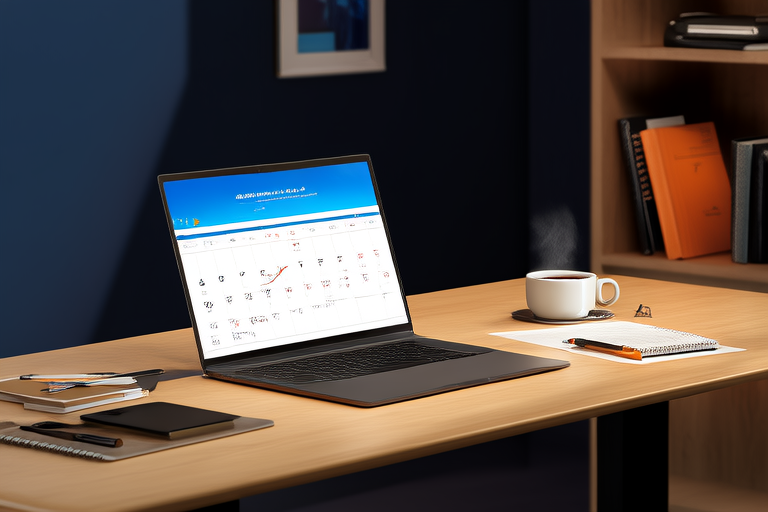Boost Your Productivity: Top 10 Time Management Tips for Busy Professionals
Introduction
In today’s fast-paced world, time management is more crucial than ever. Busy professionals often find themselves juggling multiple tasks and responsibilities, leaving little room for relaxation or personal development. Effective time management not only helps you meet deadlines but also reduces stress and increases job satisfaction. By mastering these top 10 time management tips, you can significantly boost your productivity and achieve a better work-life balance.
1. Prioritize Tasks with the Eisenhower Matrix
The Eisenhower Matrix, also known as the Urgent-Important Matrix, is a powerful tool for prioritizing tasks. It divides tasks into four categories: urgent and important, important but not urgent, urgent but not important, and neither urgent nor important. This method helps you focus on what truly matters and avoid wasting time on trivial activities.
- List all your tasks for the day or week.
- Categorize each task using the matrix.
- Focus on tasks that are both urgent and important first.
- Delegate tasks that are urgent but not important if possible.
- Schedule time for important but not urgent tasks to ensure they get done.
- Eliminate or minimize tasks in the last category.
By following this structured approach, you’ll be able to manage your workload more effectively and reduce unnecessary stress.
2. Set Clear Goals and Break Them Down
Setting clear, achievable goals is essential for maintaining focus and motivation. Without well-defined objectives, it’s easy to lose direction and become overwhelmed by the sheer number of tasks. The SMART criteria (Specific, Measurable, Achievable, Relevant, Time-bound) provide a framework for setting effective goals.
- Define your goal clearly and specifically.
- Make it measurable so you can track progress.
- Ensure it’s achievable within your current capabilities.
- Check its relevance to your overall objectives.
- Set a deadline to create a sense of urgency.
Breaking larger goals into smaller, manageable steps can also help you stay motivated and prevent burnout. For example, if your goal is to complete a major project, break it down into daily or weekly tasks.
3. Create a Daily Routine and Stick to It
Consistency is key to productivity. Establishing a daily routine helps streamline your workflow and minimize decision fatigue. A routine provides structure and allows you to allocate specific times for different activities, ensuring that nothing falls through the cracks.
- Start your day with a clear plan: Review your schedule and prioritize tasks.
- Block out time for focused work: Use techniques like Pomodoro (25 minutes of work followed by a 5-minute break).
- Include breaks and downtime: Short breaks can improve concentration and creativity.
- End your day with reflection: Review what you accomplished and plan for the next day.
By sticking to a routine, you’ll develop good habits and enhance your overall efficiency.
4. Learn to Say No and Delegate
One of the biggest challenges for busy professionals is saying no to additional responsibilities. While it may feel difficult to turn down opportunities, overcommitting can lead to burnout and decreased productivity. Learning to delegate tasks to others is equally important.
- Evaluate the request: Consider whether it aligns with your goals and priorities.
- Be polite but firm: Express your limitations respectfully.
- Offer alternatives: Suggest other ways to support the request without taking on the entire burden.
Delegating tasks not only lightens your load but also empowers your team members. Trusting others to handle certain responsibilities can free up your time for more critical tasks.
5. Minimize Distractions and Stay Focused
Distractions can derail even the most productive individuals. Whether it’s social media, emails, or office chatter, constant interruptions can severely impact your ability to concentrate. Implementing strategies to minimize distractions is vital for maintaining focus.
- Use apps to block distracting websites: Tools like Freedom or Focus@Will can help you stay on task.
- Create a dedicated workspace: Designate an area where you can work without interruptions.
- Limit email checks: Set specific times to check and respond to emails instead of doing it continuously.
- Practice mindfulness: Techniques like meditation can improve your ability to concentrate.
By reducing distractions, you’ll be able to work more efficiently and accomplish more in less time.
Practical Case Study: Implementing Time Management Strategies
Let’s consider a case study of Sarah, a marketing manager at a mid-sized company. Sarah was feeling overwhelmed with her workload and struggling to meet deadlines. She decided to implement some of the time management strategies discussed above.
- Sarah started using the Eisenhower Matrix to prioritize her tasks. She quickly realized that many of her tasks were either unimportant or could be delegated.
- She set SMART goals for each quarter, breaking them down into weekly and daily tasks. This helped her stay focused and motivated.
- Sarah created a daily routine, including specific times for focused work and breaks. She found that this structure significantly improved her productivity.
- She learned to say no to non-essential tasks and delegated some responsibilities to her team. This reduced her workload and allowed her to focus on high-priority projects.
- Sarah minimized distractions by using a website blocker and creating a quiet workspace. She also practiced mindfulness to improve her concentration.
Within a few weeks, Sarah noticed a significant improvement in her productivity and overall well-being. She was able to meet her deadlines more consistently and felt less stressed.
Conclusion
Effective time management is a skill that can transform your professional life. By implementing these top 10 time management tips—prioritizing tasks, setting clear goals, creating routines, learning to say no, and minimizing distractions—you can boost your productivity and achieve a better work-life balance.
- Start small: Choose one or two strategies to implement at a time.
- Be consistent: Regularly review and adjust your methods as needed.
- Stay flexible: Adapt to changing circumstances while maintaining your focus.
By making time management a priority, you’ll be better equipped to handle the demands of your busy professional life.
